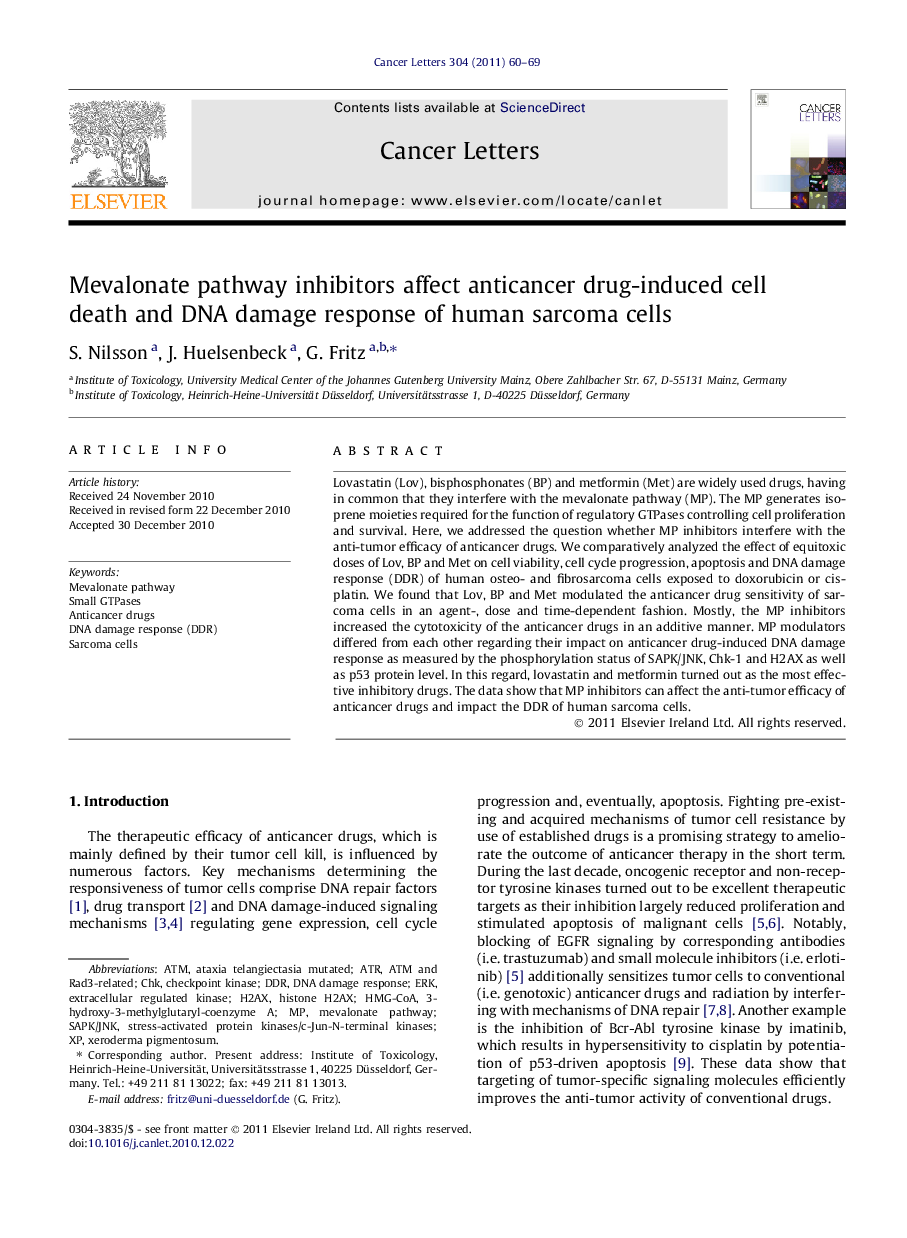| Article ID | Journal | Published Year | Pages | File Type |
|---|---|---|---|---|
| 2116416 | Cancer Letters | 2011 | 10 Pages |
Lovastatin (Lov), bisphosphonates (BP) and metformin (Met) are widely used drugs, having in common that they interfere with the mevalonate pathway (MP). The MP generates isoprene moieties required for the function of regulatory GTPases controlling cell proliferation and survival. Here, we addressed the question whether MP inhibitors interfere with the anti-tumor efficacy of anticancer drugs. We comparatively analyzed the effect of equitoxic doses of Lov, BP and Met on cell viability, cell cycle progression, apoptosis and DNA damage response (DDR) of human osteo- and fibrosarcoma cells exposed to doxorubicin or cisplatin. We found that Lov, BP and Met modulated the anticancer drug sensitivity of sarcoma cells in an agent-, dose and time-dependent fashion. Mostly, the MP inhibitors increased the cytotoxicity of the anticancer drugs in an additive manner. MP modulators differed from each other regarding their impact on anticancer drug-induced DNA damage response as measured by the phosphorylation status of SAPK/JNK, Chk-1 and H2AX as well as p53 protein level. In this regard, lovastatin and metformin turned out as the most effective inhibitory drugs. The data show that MP inhibitors can affect the anti-tumor efficacy of anticancer drugs and impact the DDR of human sarcoma cells.
